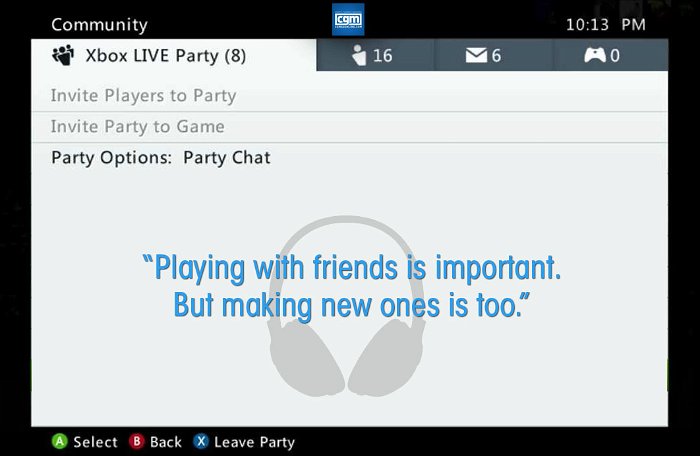When the Xbox 360 first hit the streets back in 2005, it opened a whole new world of online play to console gamers. It was the same world that PC gamers had been enjoying for years, but this was the first time that it came as part of a standard, retail package, straight out of the box. People that bought the Xbox 360—and were willing to subscribe to Xbox Live—could now enjoy a packed in headset to communicate with everyone that they came across online.
As to be expected, this came with some good and some bad. On the good side, it made it possible in competitive multiplayer to strategize, use tactics, and even call out warning to teammates. In other words, when used efficiently, communication made a cooperative team much more effective. On the bad side—and it was a big, BIG bad side—instant, easy access to voice communication made it abundantly clear that many people should not be allowed to talk anonymously. In addition to minor irritations like playing music in the background, or excessive trash talking, much bigger offenses like sexism and racism ran rampant. It didn’t take very long before Xbox Live became known as a place where “You were just asking for it,” if you weren’t male or Caucasian. It got to the point where it became common knowledge that female and minority gamers should not identify themselves as a matter of “common sense.”
Then Microsoft did an interesting thing. In 2008, they introduced the concept of “Party Chat.” It gave players the ability to create a private chat channel where they could freely speak to each other, and no one else could hear or intervene in their communication. You didn’t even have to be playing the same game it worked all across Xbox Live, regardless of what you were doing. In short order, serious players that wanted efficient communication—or even just normal players tired of random insults and threats—abandoned general chat. Competitive multiplayer games, once full of people speaking to each other, became quieter affairs, with random loudmouths quickly muted, while everyone else stayed in their own party chat, communicating with people on their team, or even just their own friends playing other games on Xbox Live.

Sony, when they finally implemented their own pack-in headset with their latest console, followed Microsoft’s lead, including a Party Chat function with the PS4 from day one. Unlike the Xbox Live environment, people on the PlayStation network had to buy their own communication devices if they wanted to speak, so online multiplayer was a quiet affair, with only a few people speaking here and there. That didn’t change with the move to the PS4, it just meant now people might be silent not because they weren’t using a microphone, but because they were using it in party chat.
Something has been lost in this transition however. In the same way that people could make unexpected friends at bars, clubs and parties, the spontaneity of online communication—at least the sort not dominated by hate speech—made it possible for surprise positive acquaintances to start. Just like an MMO on the PC, people could be caught off guard by the unexpected, pleasant compatibility they had with someone they’d randomly met. It’s true that party chat has made the online space a quieter—and more importantly—safer place for people to freely communicate, but it’s come at the expense of serendipity, those positive moments that might only have come from taking a chance on interacting with new people.
Ultimately, some will probably argue that a safer online environment, especially for children, trumps all other considerations. And maybe they’re right. But one of the reasons people play online is to play with other people. Playing with friends is important. But making new ones is too.




